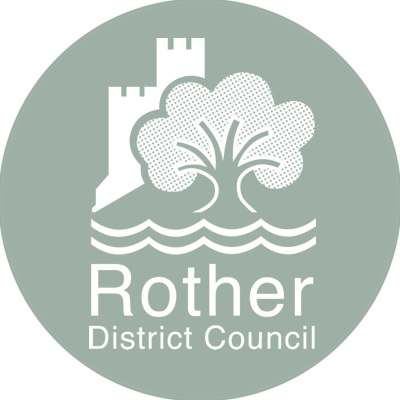Agenda item
Projects for Consideration
Minutes:
At the last meeting, the Climate Change Steering Group (CCSG) suggested several projects that they would like to see instigated and progressed. The Director – Place and Climate Change had categorised and incorporated all projects into three distinct sections namely Rother District Council (RDC) Deliverable Corporate; RDC Deliverable District; and Third Party Deliverable (RDC Partnership) as detailed in the report. It also included projects incorporated in the Council’s Corporate Programme and those that could be subject to applying for Community Infrastructure Levy (CIL) funding. Some projects had and could be actioned, others were subject to policy matters.
During the discussion the following was noted:
· Clarity was sought on progress of the comments and recommendations proposed by the CCSG at the meeting held on 25 November 2020, namely formulation of a Grounds Maintenance Contract Task and Finish Group and waste contract. It was clarified that the Joint Waste Partnership had commissioned a study to investigate the establishment of a carbon-neutral fleet. Results of the study would be available from March 2022 and reported to the Joint Waste and Recycling Committee.
· Clarity was also sought on progress of the staff digital suggestion box, climate change target page on the website, tree wardens, the Clean Growth UK led by Brighton University, staff survey and ‘green tip of the week’ on ‘MyAlerts’. Progress was unknown at the meeting and would be sought.
· RDC Deliverable (Corporate) – the CCSG requested the timescales and progress of each project and which ones had already been instigated or were scheduled to commence etc. The Director – Place and Climate Change advised that delivery of the projects would be overseen by the Project Officer (Environment). This position was currently out for recruitment and several applications had been received. Interviews were scheduled to be held and it was anticipated that the new officer would be in post by the end of March / beginning of April. Once appointed, the Project Officer would be responsible for prioritising the projects and instigating those that could be actioned immediately, as well as those that would require additional resources and / or funding. £100,000 per annum had been assigned (this included the officer’s salary). Project delivery timescales were unknown at this stage. The Council’s primary focus was to deliver both a mixture of balanced short and long-term projects, subject to resources and funding, which benefitted all residents and reduced the carbon footprint across the district. A programme of delivery would be formalised and agreed by Cabinet for the CCSG to oversee and monitor; regular progress would be reported.
· A carbon neutral measurement tool was being used to identify and calculate / map-out the district’s carbon footprint; details would be presented at the next meeting.
· All available powers to influence, educate and support residents and businesses (change lifestyle choices) to reduce their carbon footprint would be required.
· Members requested that the pollinator and pesticide policy project be instigated as soon as possible.
· Important that partnership and local community working was successful and continued to be developed to deliver projects efficiently and effectively to ensure the Council’s aims were realised for the district, e.g. wildflower verges with East Sussex County Council etc.
· Important to identify when to seek support / advice that required specific expertise, e.g. Sussex Wildlife Trust, Bexhill Environment Group, Energise East Sussex etc. The Director – Place and Climate Change clarified that advice was currently being sought from the Sussex Wildlife Trust regarding work and support they could provide for the Council. Once received this would be incorporated with the Council’s Environment Strategy; the CCSG would be kept abreast of developments. Members were reminded that the Environment Strategy was a living document and was continuously evolving and being reviewed / updated.
· Important that the Council focused on progressing a robust Environment Strategy with clear deliverable and realistic actions.
· An impactful way to reduce carbon usage was through the Council’s Housing Policy and development of the Local Plan.
· Provide ‘pool’ electric vehicles for employees to carry out their Council duties. Officers with car allowances be encouraged to use that money to purchase electric vehicles. Viability / practicality research would be required.
· Record measurement of all projects and communicate results to residents via the Council’s website and all social media platforms.
· Deliver low carbon retrofitting of Council owned stock, e.g. energy efficient heat pumps, solar panels etc.
· Progress was sought on the tree planting project for Bexhill. Information was not available and Members would be advised of progress after the meeting.
· CIL funding would only apply to infrastructure projects that met CIL strategic criteria (set by the Government). Match-funding opportunities might be available with relevant partners e.g. ESCC.
Progress on instigated projects would be reported at the next meeting. Members were encouraged to consider what the Council’s priorities were and to forward project ideas to the Director – Place and Climate Change. Work would commence on project feasibility against benchmarking / baselining and an update would be reported at the next meeting.
RESOLVED: That:
1) progress on instigated projects, carbon neutral measurement tool and project feasibility against benchmarking / baselining be reported at the next meeting; and
2) Members forward project ideas to the Director – Place and Climate Change.
Supporting documents:
